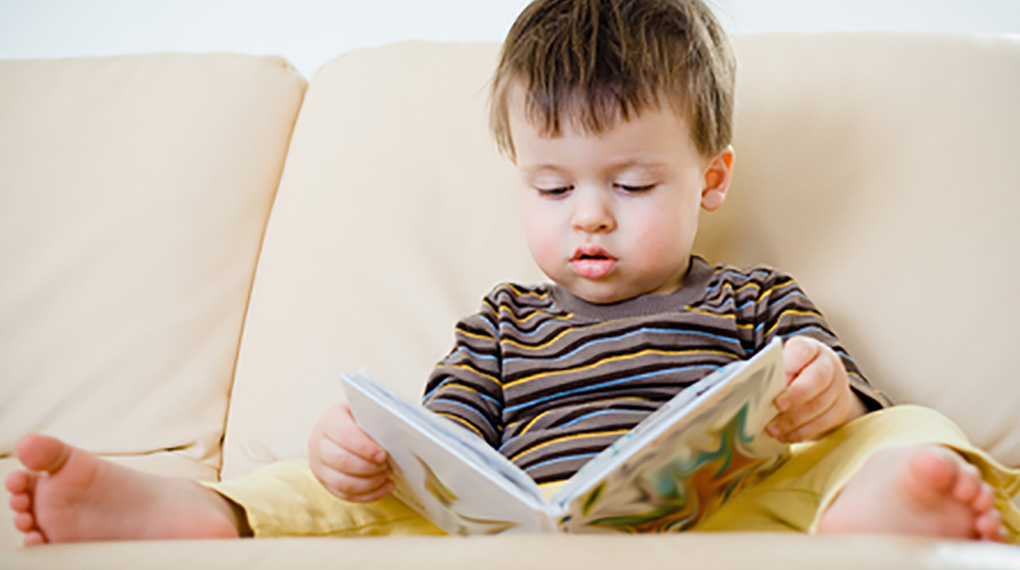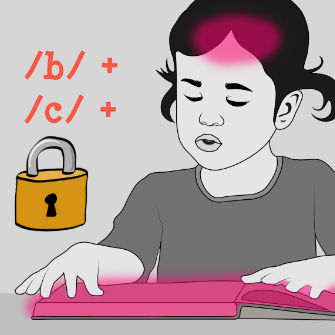This article was contributed by my good friend Sandy Gallagher.
Kids are like sponges. They absorb information easily and mimic anything they want. Leave them in front of the television and they’ll eventually pick up the accent or the language of their favorite cartoon character.

Thanks to Dora and Handy Manny, kids as young as two years old can understand Spanish. So, it makes me wonder. If they can pick up information from the television that easily, can they also understand the words that they see in a book? The answer might surprise you.
The Actual Age When Kids Start To Read
In spite of all our attempts to expose our kids to books, they start to learn how to read before the age of 5 or 6. This information shocked me.
When my daughter turned three, she was already able to read sight words. At least, that was what I thought at that time.
When she was about three years, I would practice her every single day with flashcards of sight words. I figured; I didn’t have anything to lose by trying it. If my daughter could get used to seeing the words, it would register in her mind and she would eventually be able to read it, right?
So, I used a lot of flashcards and printed books to familiarize her with words. As early as two years old, she was able to say a couple of sight words from the flashcards. She was also able to retell the story that I was reading to her. She knew the characters pretty well.
At that point, I felt that my daughter was pretty advanced for her age. Wow, she could read a couple of words. I felt proud and secretly thought I had a bright kid in my hands.
She was not reading. She was just picking up information. Yes, there is a difference between the two.
It Takes A lot To Decode Printed Letters
Like any mom out there, I secretly feel that my daughter is smarter than most kids. Then I come across this research that takes me back to reality.
According to the said research, the neural connections in young kids are not yet developed. These neural connections are critical. They help decode the printed letters so that they could be combined mentally to form words.
I guess my daughter was just picking up words at that time. With my incessant coaching, which seemed like nagging at times, how could she not pick up a couple of words?
Picking up a couple of words is a lot different from reading. If there was one thing, I failed to check was that if she understood the words on the flashcards.
I was just too caught up with having her read the words that she ended up just mimicking the words because I would say them as well. Then she would associate the words on the flashcards. However, she wasn’t reading them.
Reading Readiness

 Easy, Simple 15 Minutes A Day Reading Method Turned My Child From A Struggling Reader To An Advanced Reader. Works Great For Young Children Too. Click To Read My Story.
Easy, Simple 15 Minutes A Day Reading Method Turned My Child From A Struggling Reader To An Advanced Reader. Works Great For Young Children Too. Click To Read My Story.
The same research shared some great tips on reading readiness in toddlers. According to it, the key is indirect instruction. That was the first time I had ever heard of the term. However, it wasn’t exactly a new thing.
Indirect instruction is about getting our kids excited about books and printed words. Hence, it involves the introduction of printed books to our kids.
One of the best ways to do it is by reading to our kids. The earlier we start, the better. According to the research, we should start reading books to babies.
Babies enjoy the sight of pictures and labels in a printed book. As they get a little older, they expand their interest in rhyming books.
So, as parents, our job is to provide them books that will help them expand their interest and excitement in learning how to read.
My Take Away
As parents, we need to understand how toddlers can learn how to read. Based on my experience, I should also take it easy on my daughter.
I just got very excited when she started mimicking words that I thought I was doing a good job in teaching her how to read. The lesson I learned is to make reading more enjoyable.
Now that my daughter can recognize a word, I don’t bombard her with more words. I stop at that word and check if she understands it.
After coming across the term neural connections, I think it’s crucial for us, parents, to take some time to explain the meaning of words.
Since neural connections take some time to develop, we, parents, should not be limited to just having our young kids repeat a word from a printed book or a pile of flashcards.
We should also make sure they understand the meaning of the words to prepare them to learn how to read the right way.
When your child learns to read at an early age, it expands their vocabulary and opens up their love for learning. It helps build their confidence and vastly improves their learning abilities.
And based on my experience, having the right reading methodology when teaching your child learn to read makes a world of difference.
I should know as I made that mistake. 😢
In fact, you can read my story about my child’s struggle with reading here and how we were able to help my child become an advanced reader here. 😀🤗
